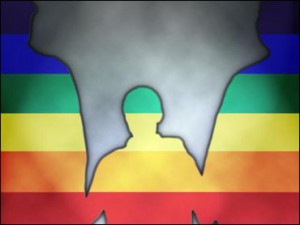Virginia Blocks Effort to Allow Adoption Rights for Same-Sex Couples

By Brian Magee
The Roman Catholic Church in Virginia has successfully argued that adoptions carried out by their affiliated agencies can use “religious liberty” to discriminate on the basis of sexual orientation, religion, political beliefs, age, gender, disability, and family status when choosing adoptive parents.
In a 5-1 vote last week, the Virginia Board of Social Services agreed to allow the discriminatory practices. They agreed with the claim from Catholics and others that placing children in homes that do not follow their specific religious teachings would be a violation of their religious freedoms. State and federal anti-discrimination laws were not considered to be relevant. The ACLU is among the groups considering a lawsuit based on those very laws.
ACLU of Virginia Legal Director Rebecca Glenberg said litigation is “under consideration,” claiming there is no reason to exclude any prospective parents for the reasons that will be allowed. Social Services Board Chairwoman Bela Sood, the lone dissenting vote, looked at the science behind the charge of unfitness by certain religious groups. She didn’t agree with the “religious liberty” supporters. Instead, she concluded “the science really doesn’t substantiate” the claims being made in favor of discrimination against potential LGBT parents, for example.
The law is set to go into effect next May and only stops discrimination based on race, color or national origin. Because of the way the new rules are written, state law will allow for single LGBT applicants to be protected from discrimination, while those with a permanent same-sex partner can be denied.
This move comes after wide protections were to be instituted two years ago under a previous governor. But an effort by religious groups, including the Catholic Church and others aligned with them, resulted in people showing up at public hearings and writing letters asking that religious belief-based discrimination be instituted instead. The state board agreed that the request to discriminate should be approved because the “religious liberty” of the people working for the adoption agencies was more important.
The Rutherford Institute, a group supportive of the church, has labeled these agencies part of an “adoption ministry” and government anti-discrimination rules would be “violating their sincerely-held religious beliefs.”
About half of the 81 private adoption agencies in the state are affiliated with religious groups, so not all adoptions will use religious-based discriminatory practices when evaluating potential adoptive parents. But when the new rules go into effect, there’s nothing stopping that from happening.
There are currently 6,000 children in Virginia’s foster care system along with 1,200 waiting to be adopted.
Brian Magee is the communications associate for the American Humanist Association.
